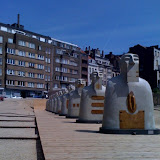The better half organised a Eurovision party last night. Not that I needed an excuse to take a peek at the goings on in this year’s kitsch fest but a bit of party snacks and company for the dissing always helps. So we’re out – and a song that was never really destined to...
Dear Long Weekend
posted by Jacques René Zammit
J’accuse is anything but a personal diary but sometimes we do take a little snapshot of the j’accuse life out of a mere desire to experiment with the more conventional way of blogging (as well as an indirect justification as to why j’accuse has not been so engaging over the...
Inter-cettati : Ridi...
posted by Jacques René Zammit
Il processo Calciopoli 2 continua oggi. Mancini ridimensiona le sue allegazioni del 2006… toh ne esce fuori un bel niente. Si continua però a scoprire i rapporti stretti di Giacintone con le terne arbitrali. Celebrate anche questa? All-night a Milano forse? Ma fateci il piacere....
J'accuse : Show...
posted by Jacques René Zammit
Laughter, they say, is the best medicine. More often than not a good sense of humour is the ideal sort of equipment to deal with hard times – that and a constant reminder that “this too shall pass”. The intelligent ability to make light of one’s own troubles must not be confused with...
Back with the Footba...
posted by Jacques René Zammit
Inter-cettati fans are extatic. They are at the top European echelon and boy have they worked hard to get there. Pity that footballing spirit has little to do with the work involved. For the inter-cettati to even get a whiff of victory they had to lie low while others around them were being...


